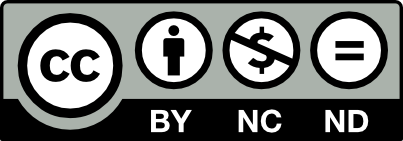LOOKING FOR “PSY-TOOLS” An explorative study on mental health professionals’ viewpoints about clinical competences.
DOI:
https://doi.org/10.23823/jps.v1i1.8Parole chiave:
psicoterapia, psicologia, psichiatria, competenze, abilità, professionisti, salute mentaleAbstract
“Skill” is usually confused both with the term “ability”, which from the Latin “habilis” means manageable, referring to a technical function, both with the term “capacity”, the possibility of realizing a performance (Fulcheri, 2005). Here we intend with the term “skill” a union between “to know”, “to know-how” and “to know how to be”. “To know” regards all theories, codified knowledge formulated by communities of experts about a specific topic. “To know-how” regards working methodology, operative aspects oriented by theories critically chosen by the professional as a working berth. “To know-how” includes, therefore, operative and procedural knowledge, practical skills, specific professional experience, problem solving in working practice.
This study started from literature analysis before explained with the aims of explore and display any difference in conducting a clinical interview, according to specific competences as well as the psychotherapeutic competences in two groups of mental health professionals: psychologists in psychotherapeutic training and physicians in psychiatric training.
Downloads
Riferimenti bibliografici
Behnke S., (2005), Cooperating with Other Professionals: Reflections on Ethical Standard 3.09, APA, 36, 3. http://www.apa.org/monitor/mar05/ethics.aspx
Bilello M. & Giusti E., (2016), Lo psicoterapeuta sanitario nell’ambulatorio medico, Sovera Edizioni
Davies T., ABC of mental health: Mental health assessment, BMJ, May 1997; 314: 1536
Dunning D., Heath C. and Suls J. M., (2004), Flawed Self-Assessment, Implications for Health, Education, and the Workplace, Psychological Science in the Public Interest, vol. 5 no. 3 69-106, doi: 10.1111/j.1529-1006.2004.00018.x
Esposito G., Freda M.F., Bosco V., (2015), Examining perception of competency through practicum competencies outline, European Journal of Training and Development, 39(8),
doi: 10.1108/EJTD-05-2015-0037 http://dx.doi.org/10.1108/EJTD-05-2015-0037
Francesetti G. et al., (2012), Le competenze specifiche dello psicoterapeuta della Gestalt, Documento elaborato dalla Commissione Competenze della SIPG
Fouad N. A, Hatcher R. L., et al., (2009), Competency Benchmarcks: A model for understanding and measuring competence in professional psychologist across training levels, Training and Education in Professional Psychology, 3: 5-26. Doi 10.1037/a0015832
Fulcheri M., (2005), La psicologia clinica oggi. Nuove Prospettive in Psicologia, Anno XX, 1 (33)
Hatcher R. L., Lassiter K. D. (2007), Initial Training in Professional Psychology: The Practicum Competencies Outline, Training and Education in Professional Psychology, 1, 49-63 doi: 10.1037/1931-3918.1.1.49
Iozzelli D. & Santoro L., (a cura di), Le competenze fondamentali dello psicologo clinico secondo la divisione di psicologia clinica della British Psychological Society, traduzione del Documento Core competence for Clinical Psychologist
IOM (Istitute of medicine), (2003), Health professions education: A bridge to quality , Washington, DC: National Academy Press
Istitute of Medicine, (2003), Health professions education: A bridge to quality, Washington, DC: National Academy Press
Kaslow, N.J. et al., (2004), Competencies Conference: Future Directions in Education and Credentialing in Professional Psychology, Journal of Clinical Psychology, 60(7), 699-712. doi: 10.1002/jclp.20016
Kaslow et al., (2007), Guiding principles and recommendations for the assessment of competence, Professional Psychology: Research and Practice, 38(5), 441-451. doi: 10.1037/0735-7028.38.5.441
Kaslow et al., (2009), Competency assessment toolkit for professional psychology, Training and education in professional psychology, 3(4 Suppl.), S27-S45. doi: 10.1037/a0015833
Le Boterf G., (1995), De la competence. Essai sur un attracteur étrange, Paris, Les Editions d’Organization
Pellegrini P., (2009), Riflessioni sull'identità degli operatori in psichiatria, in PSICOTERAPIA E SCIENZE UMANE, vol. 4, pp. 545—558, doi: 10.3280/PU2009-004006
Rodolfa E. et al., (2005), A Cube Model for Competency Development: Implications for Psychology Educators and Regulators, Professional Psychology: Research and Practice, 36, 347–354, DOI:10.1037/0735-7028.36.4.347
Scheiber S. C., Kramer T. A., Adamowski S. E. (a cura di) (2008), Core Competencies for Psychiatric Practice: What Clinicians Need to Know (A Report of the American Board of Psichiatry and Neurology, Inc.), American Psychiatric Inc.
Watzlawick et al., (1971), Pragmatica della comunicazione umana, Astrolabio
Dowloads
Pubblicato
Fascicolo
Sezione
Licenza
Gli autori che pubblicano su questa rivista accettano le seguenti condizioni:
- Gli autori mantengono i diritti sulla loro opera e cedono alla rivista il diritto di prima pubblicazione dell'opera, contemporaneamente licenziata sotto una Licenza Creative Commons - Attribuzione che permette ad altri di condividere l'opera indicando la paternità intellettuale e la prima pubblicazione su questa rivista.
- Gli autori possono aderire ad altri accordi di licenza non esclusiva per la distribuzione della versione dell'opera pubblicata (es. depositarla in un archivio istituzionale o pubblicarla in una monografia), a patto di indicare che la prima pubblicazione è avvenuta su questa rivista.
- Gli autori possono diffondere la loro opera online (es. in repository istituzionali o nel loro sito web) prima e durante il processo di submission, poichè può portare a scambi produttivi e aumentare le citazioni dell'opera pubblicata (Vedi The Effect of Open Access).









